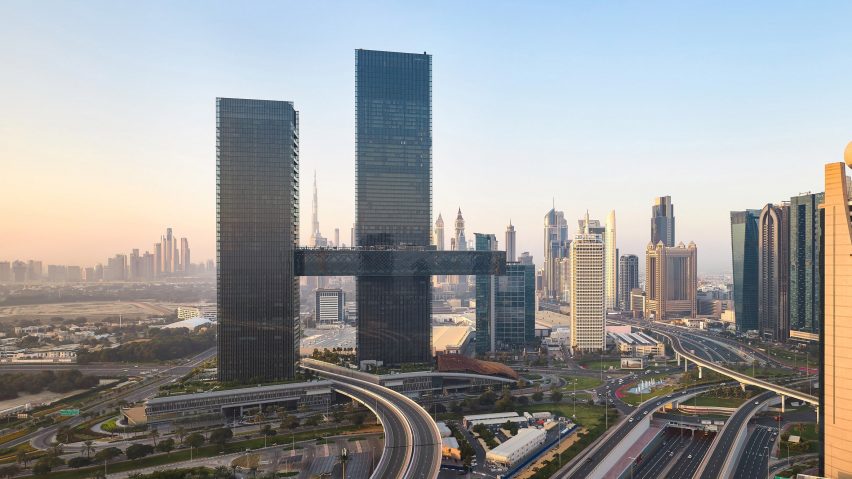
World's longest cantilever opens over six-lane highway in Dubai
The world's longest cantilever has reached completion in Dubai, projecting out from between two skyscrapers at the mixed-use One Za'abeel development by Japanese studio Nikken Sekkei.
Measuring 67.5 metres, the cantilever forms part of a longer horizontal structure called The Link, which is dramatically suspended 100 metres above a six-lane highway and topped by a giant infinity pool.
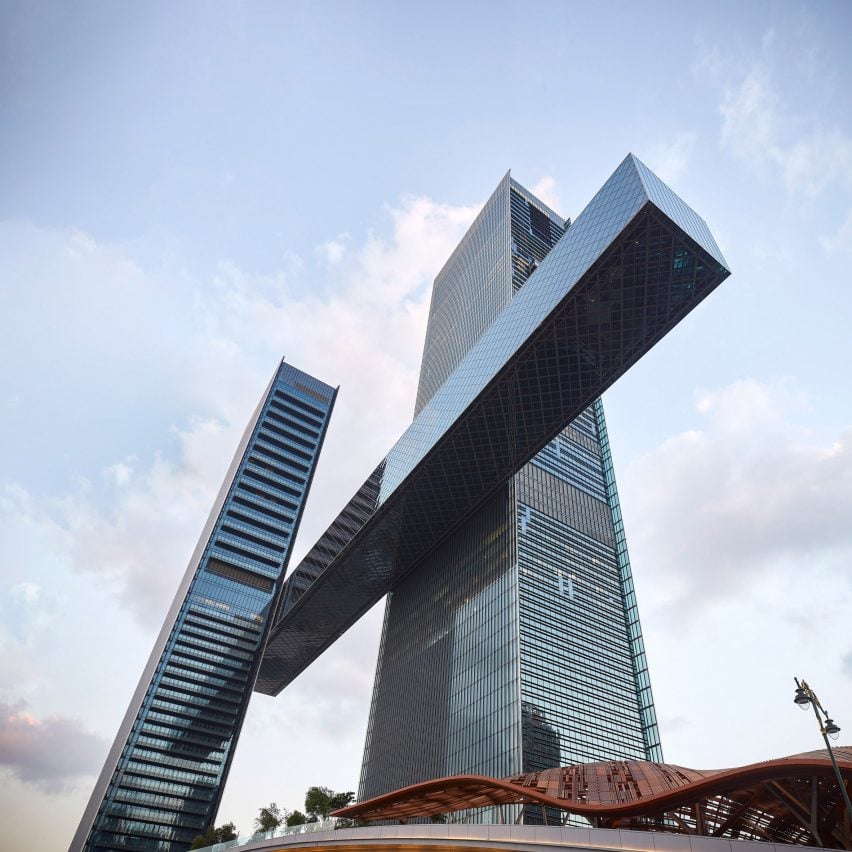
The Link is connected to the skyscrapers at two points. As the towers sit on either side of the highway, Nikken Sekkei designed it to function as a four-storey bridge between them.
Its 67.5-metre-long cantilever, which faces northwest towards the Arabian Gulf, overtakes the 66.5-metre-long observation deck at Marina Bay Sands in Singapore as the longest cantilever in the world.
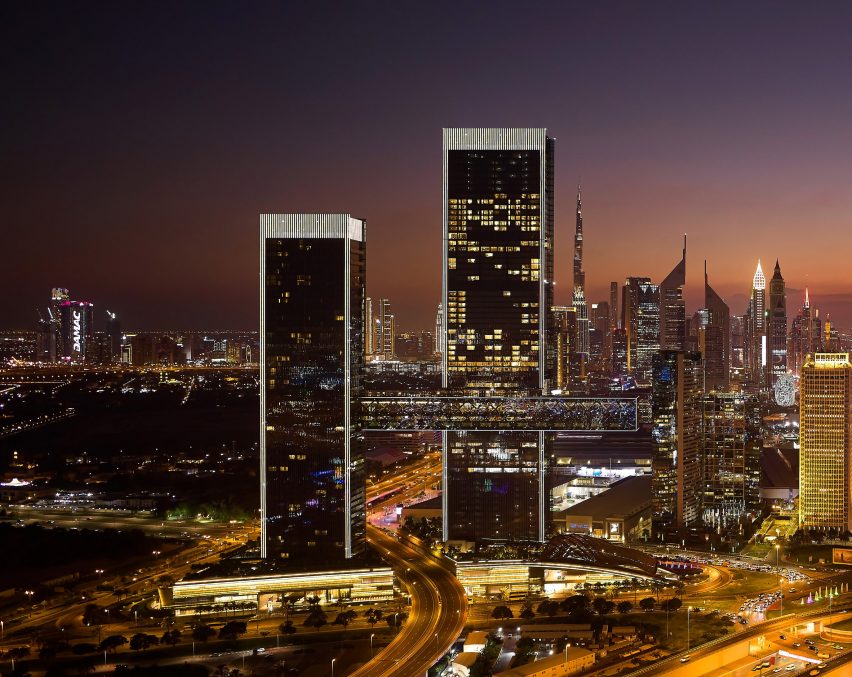
Nikken Sekkei designed The Link as the centrepiece of One Za'abeel, which is a luxury mixed-use development that comprises apartments, hotels, offices, retail and restaurants. The project is intended as a visual gateway to the city centre.
At 230 metres long, The Link is only five metres shorter than the smallest of the two skyscrapers. The second tower extends to 305 metres, cementing its place on Dubai's growing list of supertalls – skyscrapers over 300 metres tall.
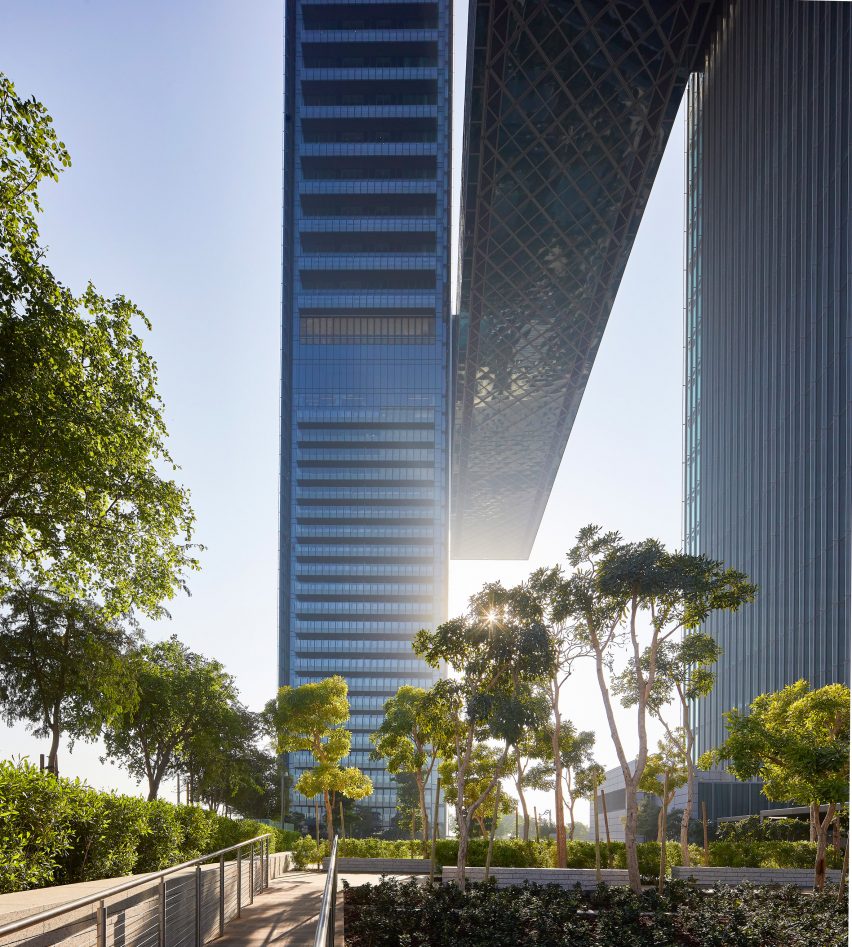
According to Nikken Sekkei, achieving a world record "was not the main aim" of the project.
Rather, the studio set out to create a deceptively simple structure with clean-cut glass facades, embodying its minimalist Japanese design approach and challenging Dubai's tradition of more elaborate skyscrapers.
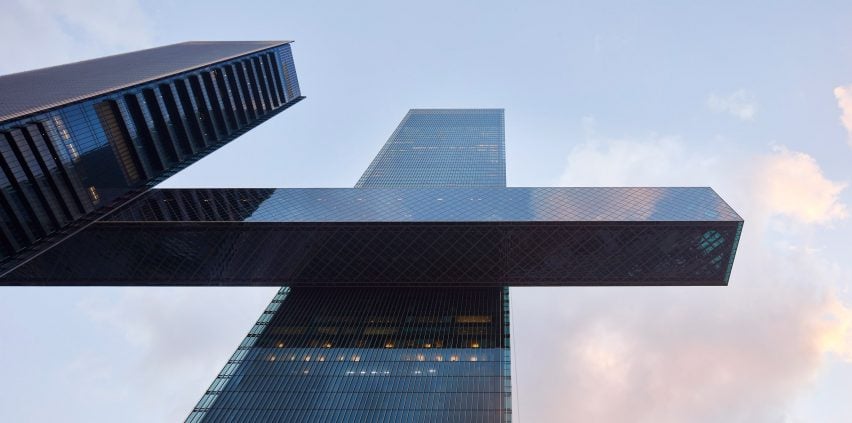
"Adding something new to the skyline of Dubai, that was a challenge for us," reflected Fadi Jabri, the CEO of Nikken Sekkei's Dubai office.
"We tried to come up with something which is very simple," he told Dezeen.
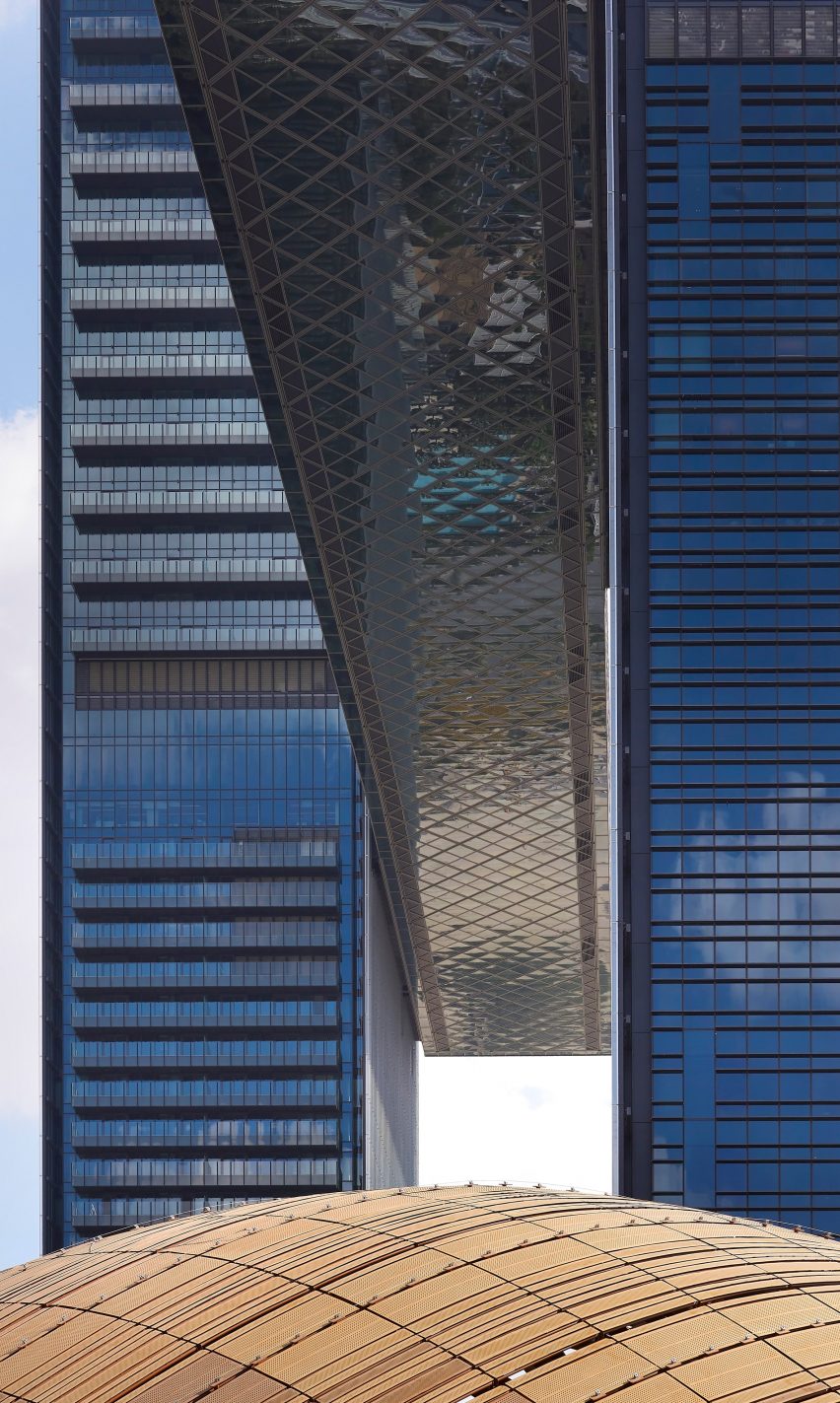
"It was not the main aim to reach that goal [of world's longest cantilever]," added project lead David Lehnort, while on a tour of the development.
"You want to stand out in a certain way," he continued. "I think this is a more Japanese approach, to take a step back. The architecture is becoming the background for the scenery and all the drama that is going to happen here with all the luxury, sparkle and glamour."
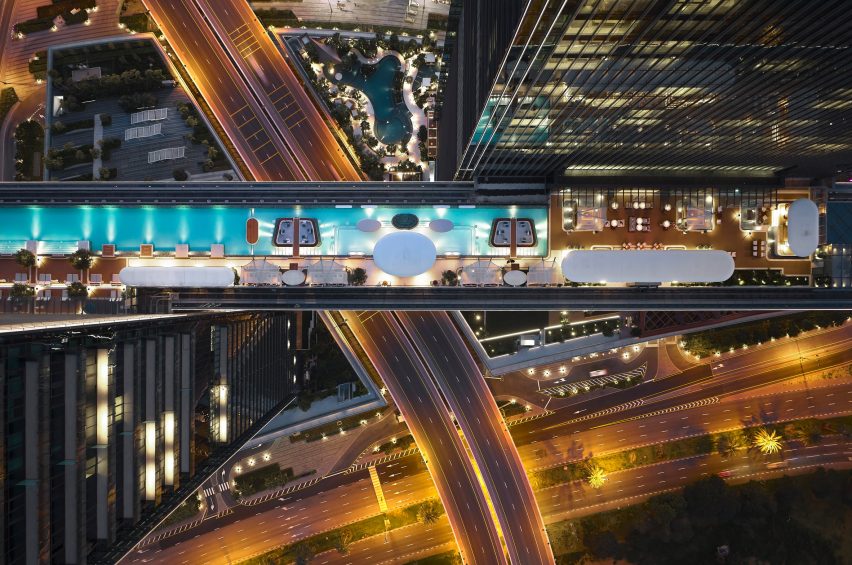
Inside, One Za'abeel encompasses 530,000 square metres, which includes 26,000 square metres of office space and 12,000 square metres of retail space.
In the shortest tower, which is named One Za'abeel The Residences, a total of 264 private homes are located across 59 storeys.
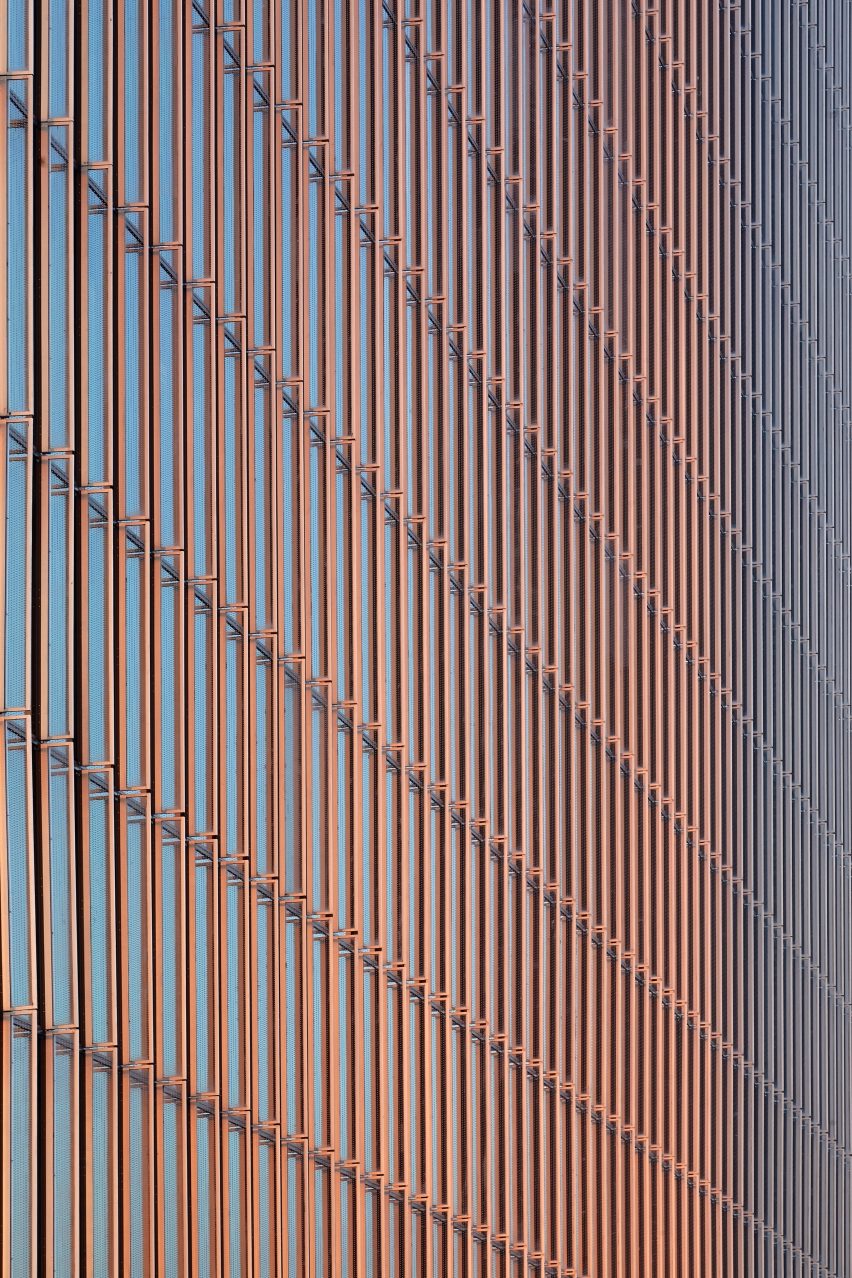
The 68-storey skyscraper, called One Za'abeel Tower, has a further 94 private homes and nine penthouses serviced by luxury accommodation brand One&Only. The brand also has 229 hotel rooms and suites, which it describes as an "urban resort", in the building.
One Za'abeel Tower also contains Siro – a fitness and wellness hotel that contains 132 rooms – in addition to conferencing and event spaces, a spa, and 11 restaurants. Both the One&Only and Siro facilities are overseen by hotel operator Kerzner.
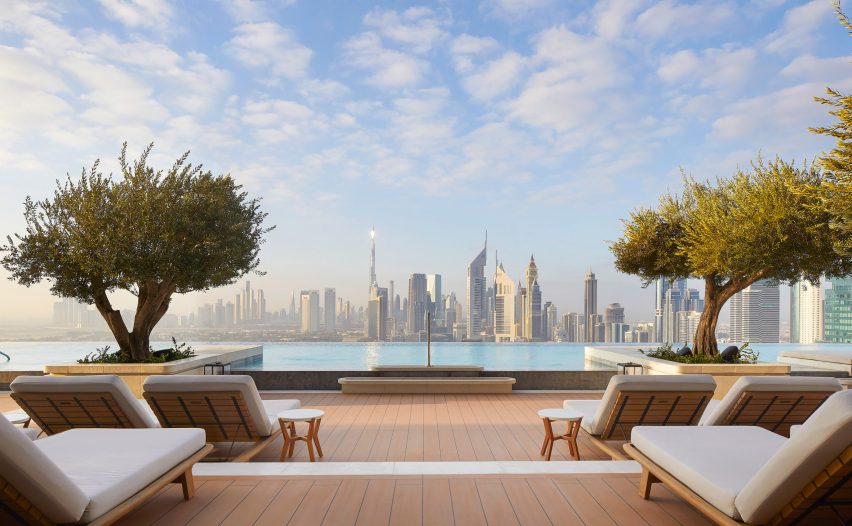
The Link itself contains three storeys of restaurants and bars, all with column-free interiors thanks to an external diagrid structure. The area at the furthest end of the cantilever has a glass floor, providing views down to the road below.
On its roof is another record-breaking feature – the world's longest suspended infinity pool and the UAE's longest rooftop infinity pool, which is intended to resemble "a beach in the sky".
"[This project] gave us the opportunity to think about what an urban resort stands for," Kerzner CEO Philippe Zuber told Dezeen.
"Our view was to say, since we don't have a beach, let's create The Link. This is an elevated pool bar, this is a beach in the sky. This is something that is super special."
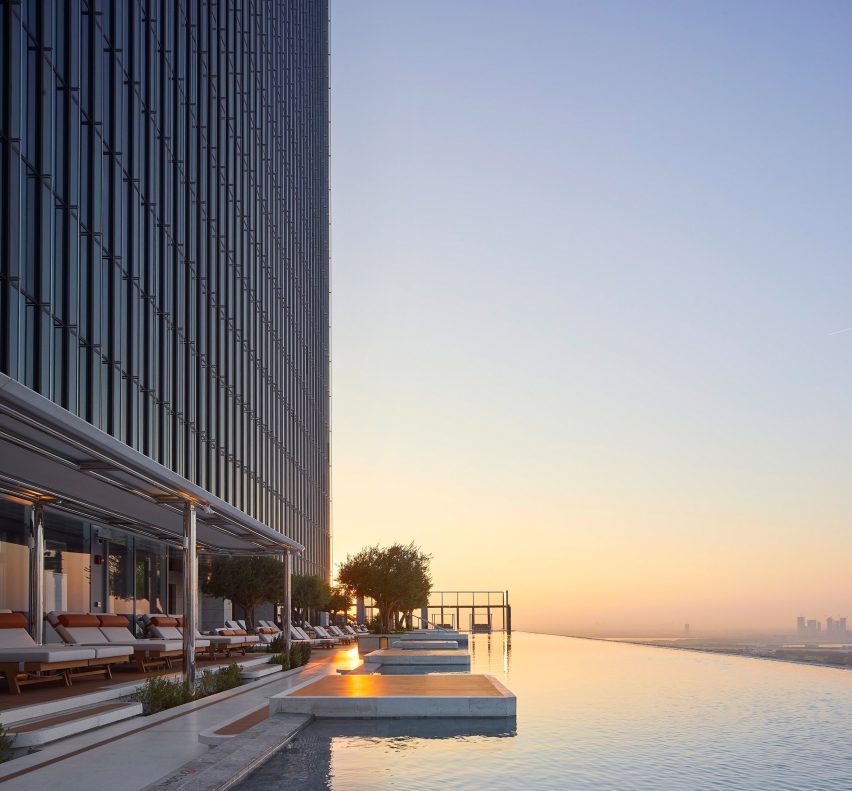
One Za'abeel is complete with 14 basement levels evenly split across the towers, and a series of retail and leisure facilities in The Podium – a three-storey structure that links the towers from ground level.
On the roof of The Podium is an "urban park" with gardens and a pool, intended to emulate Balinese landscapes.
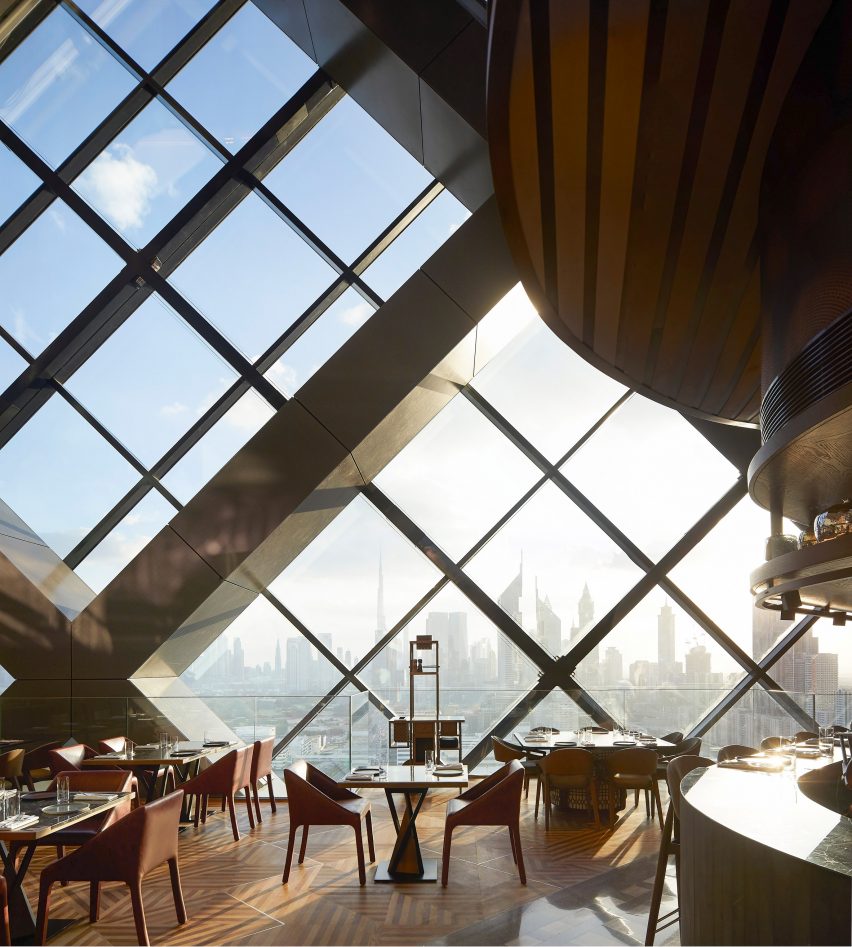
The project has met the Gold standard requirements of the LEED green building certification, which has been achieved through various energy-saving technologies.
According to Nikken Sekkei, this includes automated electrical, lighting, and ventilation systems, and an energy-efficient glass facade system.
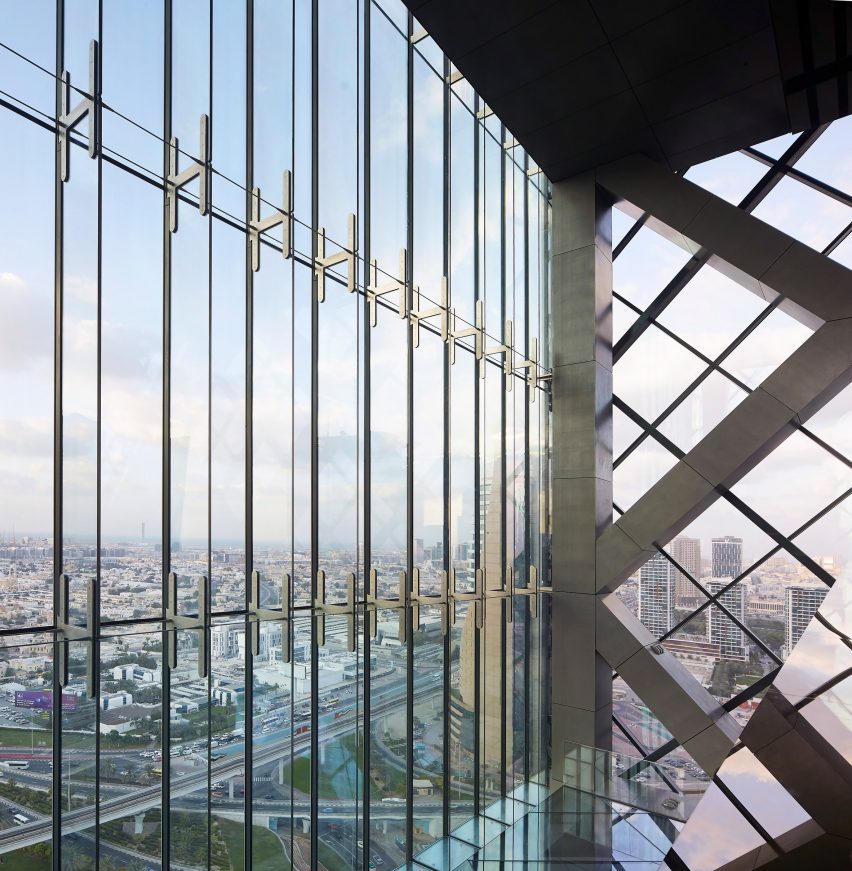
The Link was lifted over the six-line highway in two parts during 2020. The first section, weighing 8,500 tonnes, was lifted over 12 days before the 900-tonne cantilever was secured in place over four days.
Its position, which is approximately a third of the way up the towers, was chosen for visual reasons but also for how it functions programmatically between the private and public spaces. According to the studio, it also helps mitigate the sway of the towers in the wind.
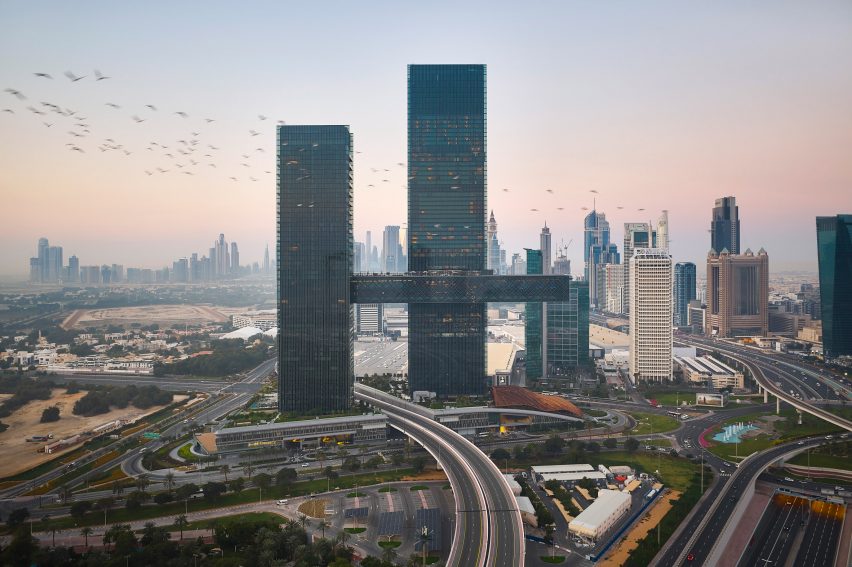
One Za'abeel is not the first record-breaking building in Dubai, as the city is also home to the world's tallest building – the Burj Khalifa. Measuring 828 metres in height, it was designed by architect Adrian Smith while working at architecture studio SOM.
Another building with a record-breaking cantilever is the Busan Cinema Center in South Korea. The structure features a column-free roof that measures 85 metres, making it the world's longest cantilever roof.
The photography is by Hufton + Crow.
Project credits:
Lead consultant: Nikken Sekkei
Contractor: Alec Engineering And Contracting
Design Partners: WSP Middle East, Inhabit, Limah, MCTS, Cracknell, Barr And Wray, RWDI, LPA, ESD, Nortech, LW Design Group, Denniston, Rockwell Group, DWP, HBA Social, Stufish, DPA, Wellness, Brimaxx, Farmboy, Capsule Arts Crowd Dynamics, Brash, Square M Design